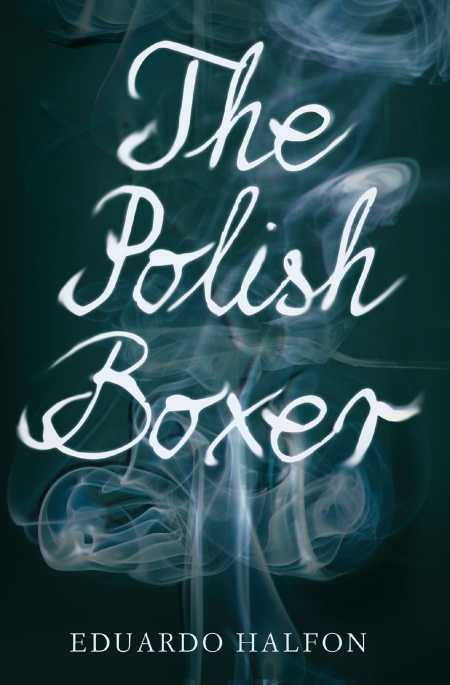The Polish Boxer
“69752. That was his phone number … he had it tattooed there, on his left forearm, so he wouldn’t forget it. That’s what my grandfather told me. And that’s what I grew up believing. In the 1970s, telephone numbers in Guatemala were five digits long.”
The grandson soon understands that his grandfather is telling him a story, and there will be others. A particularly important one involves a Polish boxer in a dark cell in Auschwitz.
Eduardo Halfon is the grandson as well as the author and protagonist of this novel-in-stories that pivots from Guatemala to Poland to Auschwitz to North Carolina to Yugoslavia to Portugal and, finally, back to Guatemala.
In the simplest explanation, The Polish Boxer is a series of encounters for literature professor Eduardo—with a young poet; university professors at a Mark Twain conference; his grandfather; his charming girlfriend, who draws her orgasms; and Milan Rackic, a Serbian-Gypsy pianist.
In the more complex explanation, it is a journey of self-discovery, wherein sometimes the most direct way is the longest. The least terrifying way, it turns out, is pretending—as Eduardo does—that you’re doing something else: talking to strangers in a bar or at a conference or at a gypsy camp in Belgrade.
Eduardo thinks he would like to know the truth of his grandfather’s survival story. “I liked this story straight away,” he tells a conference audience in Portugal, “perhaps for its simplicity or its apparent simplicity, perhaps for what it implies about the use of words for salvation, for our salvation.”
But reality is far more complicated than that. So is truth, and so is what his grandfather experienced.
Eduardo also thinks he would like to find the Serbian-Gypsy pianist. Milan Rackic’s story haunts Eduardo as much as the postcards the pianist sends him from all over the world. After a year has passed since Milan’s last postcard and there were no more “stories that I somehow began to think of as my own,” Eduardo decides to try and find him. But finding this truth, he learns, can also be as complicated as living with it.
Guatemalan Eduardo Halfon was named one of Latin America’s best young writers by the Hay Festival of Bogotá. The Polish Boxer, his first novel published in English, is based on aspects of his own family history.
Reviewed by
Hope Mills
Disclosure: This article is not an endorsement, but a review. The publisher of this book provided free copies of the book to have their book reviewed by a professional reviewer. No fee was paid by the publisher for this review. Foreword Reviews only recommends books that we love. Foreword Magazine, Inc. is disclosing this in accordance with the Federal Trade Commission’s 16 CFR, Part 255.

